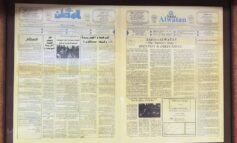Show alerts audience to Islamophobia live
This past week, the ABC newsmagazine Primetime ran a limited series entitled “What Would You Do?” The hidden camera show set up everyday scenarios that happen in America and then captured people’s reactions to them.
The leading scenario pitted a Waco, Texas bakery clerk (played by a male actor for Primetime) against an attractive but hijab-wearing young female customer (also an actress).
In the presence of other (unaware) customers, the clerk refused to serve the Muslim woman and began an escalating tirade against her and “her people.” She feigned surprise, attempted to correct the racist invective being spewed at her, and finally appealed directly to another customer for help. He refused.
The variety of actions taken by the customers in the bakery showed how very polarized this country’s population is with regard to the religion of Islam.
Most people neither said nor did anything, some electing not to look at the woman at all, although they were definitely aware of the situation and some appeared uncomfortable.
A number of people agreed with the clerk, told him they appreciated what he had said and done and gave him a thumbs-up.
When approached and questioned by the show’s anchor afterwards, these people stubbornly stuck to their opinions that the woman should not have been served, should dress differently, should go back where she came from, etc. Hostility reigned.
But on the other end of the spectrum, there was a like number of people who stood up for the woman, who told the clerk he was wrong, who stormed out saying they would take their business elsewhere and would not be back. Some of these people were approached afterwards. They cried. They had held their ground inside the store and supported the woman and her rights. But when asked outside why they had stood up for her, they were so emotional about the discrimination, they shed tears.
One man had told the store clerk, after being accused of not knowing what’s going on with ‘those people’, said firmly that he absolutely did know what was going on. His son had recently returned after serving a year in Iraq. On camera later, he wept at the indignation that had occurred.
Two young women together in the store stood up for the customer, arguing with the clerk and finally asking for the manager or owner. One of them turned out to be a non-hijab-wearing Muslim, and her friend wept at the racism that had hit so close to home.
The show proceeded to examine the lives of other hijab-wearing women in the country and show their harrowing tales of everyday life in the “land of the free.”
It was only a ten-minute segment, but it was powerful. And it proved several things. It proved that racism is alive and well and, as usual, based on lack of knowledge or fear. It proved that there are people among the general population who still strongly believe that America stands for justice and equal rights and that people should not be judged by what they wear. It proved that there is an entire, six-million-strong group of people in this country being unfairly subjected to discrimination on a daily basis, discrimination strong enough to interfere with their daily lives and make them feel unsafe. And it proved that television can be a positive force in our lives when done well.
We salute ABC and Primetime for recognizing the problem and doing something positive about it. And we salute all those women who wear hijab out of conviction in spite of their fear.





Leave a Reply